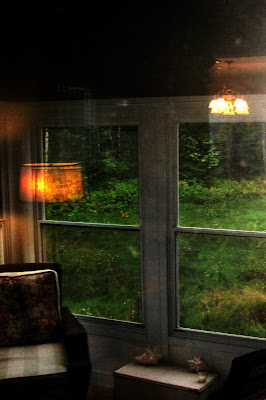Letters I did send
Sit down. Write. Stop your haphazard folding of clothes, clanging down the elevator with pinot noir bottles for recycling, picking play-doh pieces off the rug.
Stop! Reading – email, the newspaper, Rolling Stone, New Yorker articles, Geoff Dyer essays you got for the holidays, Dartmouth magazine full of profiles of people who just graduated and have already accomplished oh-so-much-more than you. Yes you need to read—lots (see Watcher of the Skies), but you can’t just soak up what others have to say, you have to say something too. You can’t just process what other people are thinking, feeling, observing, tying together—you have to process your own observations, too.
I have not kept to writing here every day. In fact, I have not posted in this new year, at all. Even in the short term, following through on such a mandate came to seem perfunctory. Writing every day is a habit, and you have to do it, and it keeps you in better shape for the writing you have to do and want to do, but people don’t need to listen to you practicing scales. So I wrote, drafts, and left them there that way, did not press send. They’re still there; letters I never sent.
Instead I had an idea—wait ! Even as I went to write this first sentence, I started to write: “I had planned…”. See, already it was not only past, but past perfect. Past apologetic. A non-contiuous verb about past (in)action. “I had planned”, dot dot dot…
What invariably follows such a passive, roundabout, anxious backward glance? “But”…that toxic word looms—something changed, something unexpected happened, I shoulda, coulda, woulda, wanted to, tried to, was going to, had in mind to, had planned to….BUT! Cue the handwringing, unnecessary, meandering explanations, the mea culpas, the plea bargains, the neuroses and multitude of excuses, the tumbling, myriad reasons for why not which are practically my ancestral liturgy. My parents are always beginning a story about something they did do with a lengthy list offering an explanation about why they did not do something else. Sometimes they show mercy on the listener and, realizing at the start of a thinly tied web of cause and effect they are losing their audience, they cut to the chase. Even for them, the sinuous causal connections-- because of having to feed the neighbor’s cat, they weren’t able to get the boxes out of the Gibs’ garage before the Gibs left for vacation, (the Gibs left a day early because of the snow), that meant they weren’t able to send the clock to Aunt Helen in time for her birthday, so they had to call her to explain, and so on—become nearly intolerable to recite. More and more they wave away all the reasons why with a word about the long story it would naturally be, and state what they did do, with the understanding they had set out to do it differently (even if it’s just when they called you back, with only an hour differential between, in their exacting minds, perfect timing and disaster).
Setting out to do it differently is how many of us begin the New Year.
Maybe going through the litany of why you didn’t do something is a way to ensure you follow a straighter path next time. But I think it has a habit of reinforcing a sense of helplessness. I wasn’t able to get you that draft back in time because of x, y and z—all variables largely out of my control. These days I prefer, “I didn’t do it.” And if a sorry is appropriate, that can get tacked on too, mumbled, under your breath. (BTW, my parents, especially my mom, are great at offering apologies, sincere and even eloquent ones, not mumbled under the breath. The barely-audible-as-you-leave-the-room variety is the kind I’ve mastered since childhood. I actually think my parents are too good at —too quick and too good at feeling that they’re in the wrong, hence the need for the elaborate, spiderweb of reasons as to why, if you think about it, what they did (take too long to call back) wasn’t all THAT terrible in the grand scheme of things when really no one thought it was even remotely terrible in the microscopic scheme.) Direct statements, ones that describe rather than apologize, can be empowering. When I began to say, “I had planned…” I was launching into a backstory passage that would be, essentially, seeking permission for not having yet done what I had planned to do. I don’t think I can make it …is that okay? It doesn’t matter if it’s okay with the other person. Get rid of ellipses. Get rid of past perfect when the present will do. Our grammar circumscribes us. Move forward. Start now.
I plan to put pieces of my Young Adult novel The Last Days of Pluto online—in serial form—hopefully 1 section a day until a deadline of the end of January for an “emerging writers” novel contest. It’s an experiment. If I’m going to crash and burn trying to send something out daily, it may as well be for something even slightly goal-driven and worthwhile. I wrote a draft of the novel in 30 days in November of 2009 for something called Nanowrimo (National Novel Writing Month). So naturally, it’s crap. It’s just stream-of-consciousness stuff and to say it’s all over the place would be a wildly flattering exaggeration. So the trick is how well and how quickly I can revise it into something even resembling a story. I will post the link here, soon. I will.
(Today, January 7, 2012, the light doesn’t match the temperature. It’s that strong winter light—sun low on the horizon—but the air feels like late March or April. I can even smell it on my skin; the beginning of spring. It should feel disturbing, but it's not. It feels generative, hopeful.)
Update*** Monday, January 9 - I've been advised not to post my novel piece by piece. Maybe just the first chapter. The emphatic "I will" had been so full of good intentions.



So true. It's not whether you can or you can't. Only whether you did or you didn't. The rest is all prologue and epilogue. Better to have the story in there. Otherwise life becomes like a bare tombstone, only a beginning and an ending. Nothing in between.
ReplyDeleteThat comment by hawkeye is so bleak! (But, I totally agree.) All the time we spend filling the space between events, waiting for godot, passing the time, fretting about passing the time.
ReplyDeleteOoo I guess it is bleak. Also makes me think of that John Lennon line.
ReplyDelete